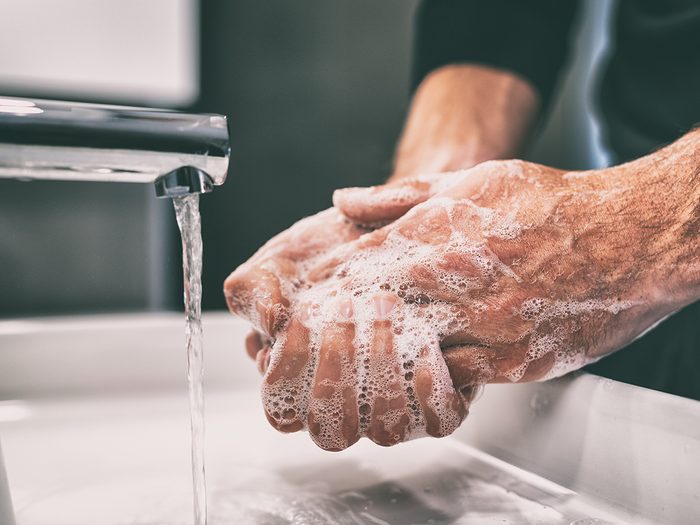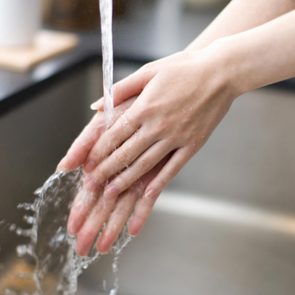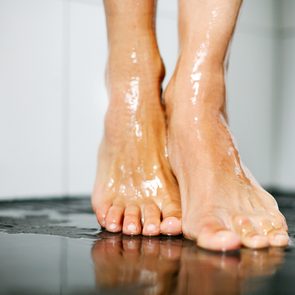Bar Soap vs. Liquid Soap: Which is Better?

When it comes to getting rid of germs, does one type of soap have an advantage over the other? The latest research might surprise you.
When it comes to getting your skin squeaky clean, you can rest easy. The style of soap you use is a matter of personal preference. From a sanitary perspective, as long as it contain cleansing ingredients, it doesn’t matter what form it’s in.
“Whether soap comes in a bar or in a liquid form, they are both equally effective at reducing pathogens and removing dirt,” says Rachel Burns, MD, a dermatologist in Edina, Minnesota.
Which soap is better for skin health?
This is where it can get tricky, as it really depends on what you’re looking for. We asked our experts to break down different categories of skin care and decide which type of soap is best for that particular need.
Use liquid soap for hydration
If you’re looking to keep your hands from getting dry and cracked, you may have better luck with a liquid formulation. “Bars of soap often have a high pH, which can cause your skin to dehydrate and dry out more easily,” says Dr. Burns.
However, many bar soaps these days are infused with oils and substances that moisturize the skin, says Ryan Smith, an organic chemist and entomologist in Beaverton, Oregon. (Here’s expert advice on how to avoid dry skin in winter.)
Use bar soap if you want cleaner ingredients
It’s important to be mindful of the ingredients in your soap because many chemicals can cross through your skin and into your bloodstream, says Dr. Burns. The more you wash your hands, the higher the potential for the accumulation of toxic ingredients.
Most bar soaps contain fewer and more natural ingredients than liquid or foaming soaps. But it’s not impossible to find liquid soaps with similarly clean formulations.
Ingredients to look for include glycerine (a cleanser that seals moisture in the skin) and essential oils (lemon, lavender, rose and cedarwood oil). Some soaps will also add coconut oil, sweet almond oil, shea butter, or coconut butter to further soften the skin.
Beware of ingredients like triclosan and parabens (preservatives that extend the shelf life of cosmetics). People with allergies should also read the labels to scan for words like “fragrance” or “parfum,” which can trigger allergies. (Find out the most toxic ingredients in your beauty regimen.)
Use bar soap if you have allergies
People with allergies or sensitive skin do better with soaps that contain fewer ingredients—and the ones they do have are more natural. They should also avoid fragrances and colours. That’s usually easier to find in bar soap formulations. “Bar soaps contain fewer chemicals which means less of a chance for a reaction on your skin,” Smith says.
Use liquid soap if you’re sharing
If you share a bathroom with others, the packaging of liquid soap makes it a friendlier option. “Bars of soap have a higher probability of accumulating bacteria and contamination when compared with liquid soap, especially if you live with other people,” says Dr. Burns. “If someone in the household is sick, you can easily pick up their germs if you have both shared the same soap bar.” Just be sure to clean and sterilize the outside of the bottle regularly. It’s one of the little things people forget to clean but should.
It’s still not 100 percent clear whether those germs that may be found on bar soap transfer to your skin when you wash, though an early study found that bacteria-covered bars of soap did not transfer bacteria during washing.
The bottom line
When it comes to bar soap vs. liquid soap, our experts suggest picking one that will make you the most likely to use it regularly and thoroughly. The best soap also depends on your specific cleaning needs, such as whether you need more hydration or if you’re looking for something that’s environmentally-friendly.
Next, check out 15 green personal care products worth trying.






